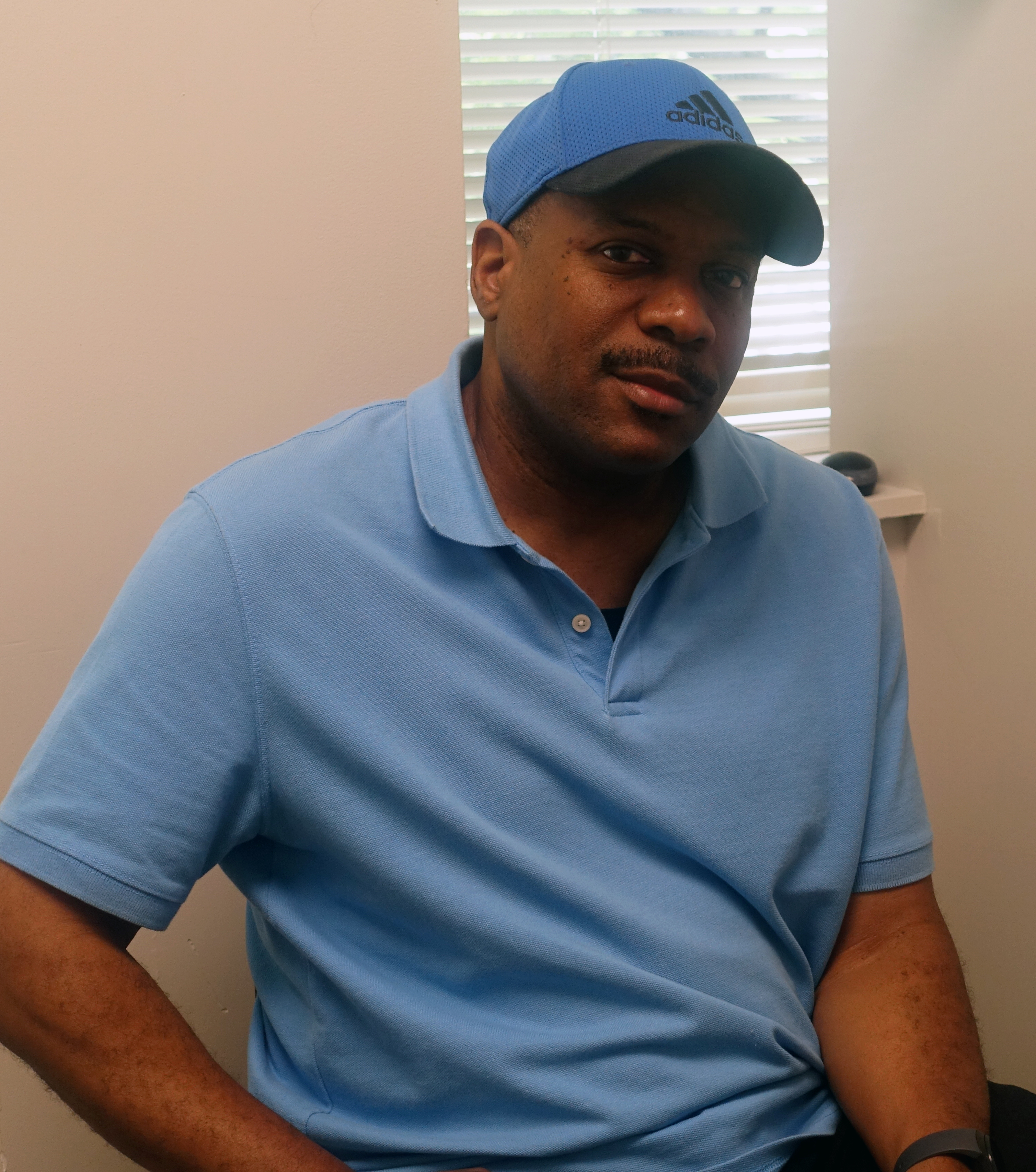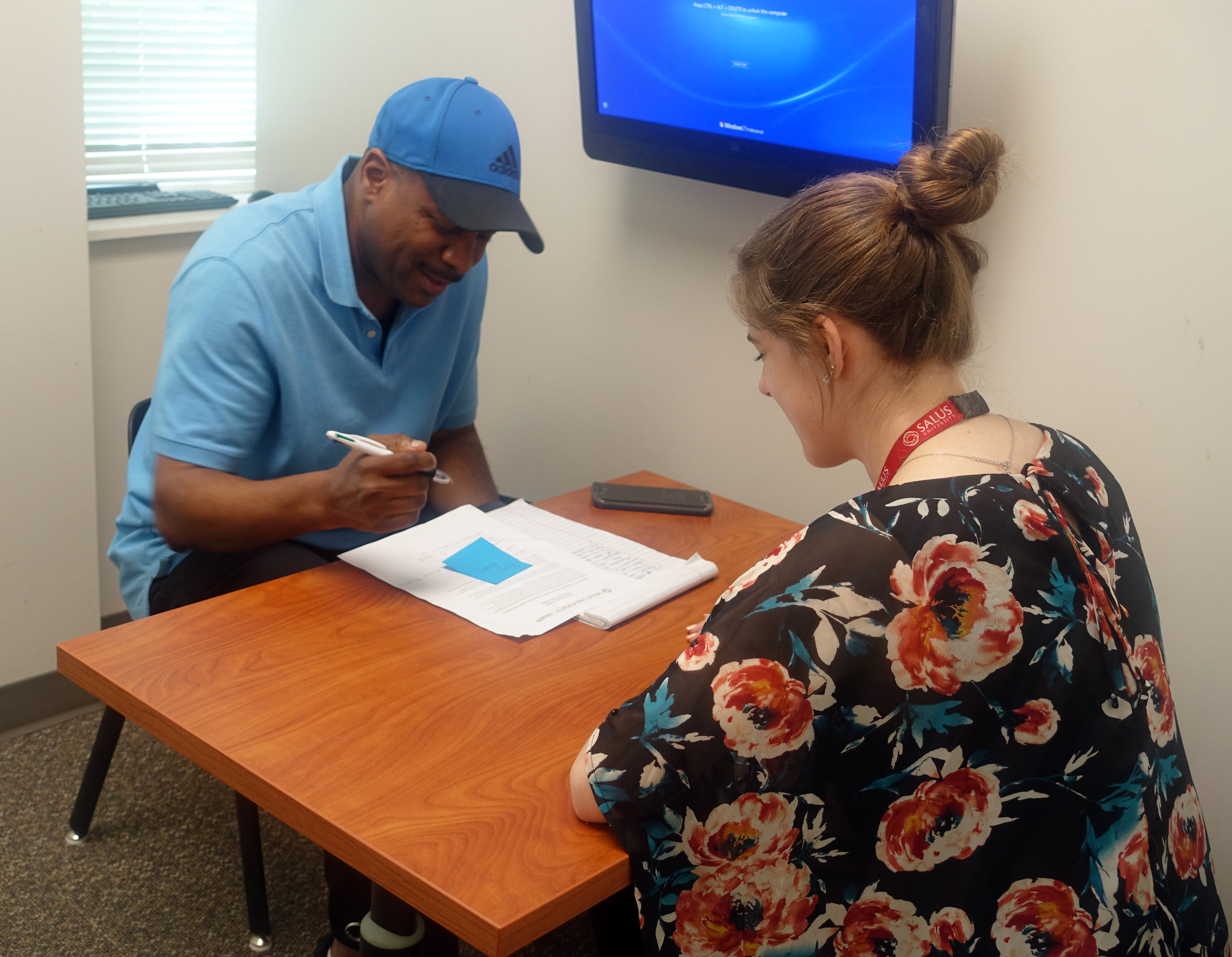Helping a Local Veteran Overcome Traumatic Brain Injury
 Darryl Bradley has always been a fighter. More than 30 years ago, he fought as a young soldier in the military and a boxer. Now instead of waging war against an enemy target or exchanging punches with an opposing athlete, he’s fighting to overcome the effects of a traumatic brain injury (TBI).
Darryl Bradley has always been a fighter. More than 30 years ago, he fought as a young soldier in the military and a boxer. Now instead of waging war against an enemy target or exchanging punches with an opposing athlete, he’s fighting to overcome the effects of a traumatic brain injury (TBI).
TBIs are caused by an impact to the head that disrupts the normal function of the brain – they can range from mild, to moderate, to severe. Serving six years in the Army, Bradley’s TBI diagnosis did not come as a surprise. According to the United States Department of Defense, more than 380,000 active duty service members have been diagnosed with a TBI since 2000.
Symptoms of TBIs can include: headaches, blurred vision, memory loss, difficulty concentrating, dizziness and vertigo – all of which Bradley has experienced. Although he was officially discharged from the military in 1985, he declined seeking proper care for years.
“My family kept encouraging me but I guess you could say I was being stubborn,” he said. “I was experiencing effects but I kept putting off getting treatment.”
In 2017, he was referred from the Veterans Affairs Medical Center in Philadelphia to Salus University’s three health facilities: The Eye Institute (TEI), the Pennsylvania Ear Institute (PEI), and the Speech-Language Institute (SLI). After a comprehensive eye exam at TEI, Bradley received vision therapy and was also given prescription glasses to clear up the blurred vision he was experiencing from nearsightedness.
At PEI, Bradley received a vestibular and balance evaluation. He was previously diagnosed with vertigo – a condition that causes dizziness, accompanied by a sense of movement or spinning and, at times, nausea or vomiting. Bradley says he is now aware of the important precautions to take in order to prevent falls in the future.
“I used to hop out of bed in the morning really fast, now I take my time and get up slowly – little techniques like that have been helpful,” he said.
Short-term memory loss has been another troublesome area. During his weekly therapy sessions at SLI, Bradley has learned different ways to organize his thoughts and improve his memory lapses.

“The exercises during therapy have been great at home – for instance now I will highlight [words or sentences] more when I read and it helps me remember things,” he said.
Bradley says the combination of comprehensive care he’s received at the three clinical facilities has improved his quality of life overall. He now feels better equipped to balance his day-to-day tasks including operating AceReel Studio, a Glenside-based multimedia production company that he has owned with his wife for 15 years.
“I know I’ll probably feel the effects of my TBI for the rest of my life but I’ve learned techniques to help me better manage in my day-to-day life,” he said.
While the effects of a TBI, depending on the severity, can linger for a lifetime, Bradley is pleased with the progress he’s made. His advice to fellow veterans?
“I would advise any veteran to seek care sooner,” he said. “A lot of people don’t realize how many great services are available but seeking care sooner can really make a world of a difference.”